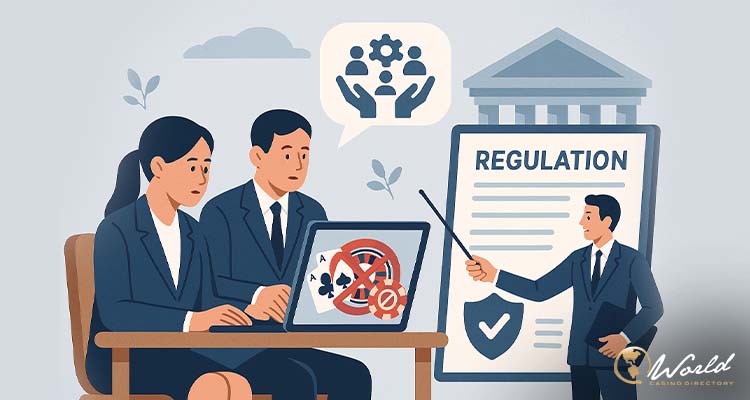Indonesia is advancing a more aggressive regulatory approach to combat online gambling, with government officials confirming that a new government regulation is being finalized. This regulation aims not only to increase enforcement but also to assign clear responsibilities to digital stakeholders such as internet service providers, fintech firms, and online platforms.
Comprehensive Policy Targets Platforms and Youth Protection
The upcoming Government Regulation on Online Gambling Eradication, as announced by the Ministry of Communication and Digital Affairs, will cover enforcement, prevention, and accountability across the digital ecosystem. According to Teguh Arifiyadi, director for certification and electronic transaction supervision at the ministry, the regulation will impose obligations on any parties involved—either directly or indirectly—in enabling gambling activity. This includes law enforcement agencies, digital platforms, and financial technology providers.
Speaking at a recent press conference, Arifiyadi said, “The sanction will be even heavier, and all will be regulated in the government regulation.” Among those impacted will be Internet service providers, who must implement risk mitigation protocols and comply with ongoing monitoring duties. Government standards will set the bar for what constitutes adequate surveillance of gambling-related content and activity.
The regulation will also introduce child protection provisions, acknowledging the alarming trend of youth exposure to online gambling. Because most gambling sites lack robust age-verification systems, children and teenagers are easily able to access them. “We can see from the data that there are tens of thousands of children and teenagers engaged in online gambling,” Arifiyadi stated.
The ministry stressed that blocking websites alone is insufficient to address the scope of the issue. Instead, the government is moving toward a layered strategy that includes content removal, financial transaction tracing, and international cooperation.
President Prabowo and Parliament Back Harsher Measures
President Prabowo Subianto has made it clear that enforcement must go beyond basic access restrictions. According to Hasan Nasbi, Head of the Presidential Communications Office, the government is now actively tracking payment gateways and money flows tied to online gambling. He noted that efforts to combat the issue will require collaboration with other countries: “So, it is not just carried out by Indonesia alone, but it needs cooperation with various countries.”
Minister of Communication and Digital Affairs Meutya Hafid echoed the President’s stance, confirming that the regulation will be issued as a Government Regulation (PP) and designed to be more stringent and far-reaching. “The President emphasised that handling online gambling must be stricter. One of the strategic steps that will be taken soon is the issuance of regulations in the form of Government Regulations (PP) that regulate more firmly and comprehensively,” Hafid said.
She also emphasized the importance of child protection in the implementation of electronic systems, noting that the updated framework under Law Number 1 of 2024 is nearing completion. Meanwhile, 43,063 digital items related to gambling content were blocked in early 2025 by the ministry, and nearly one million websites have been taken down since enforcement efforts began.
Lawmakers Demand Accountability From Officials
The issue has gained traction in the legislative arena as well. Rieke Diah Pitaloka, a member of Commission VI in the House of Representatives (DPR), called for severe sanctions on state officials and community leaders found engaging in gambling. Her comments reflect broader concerns about the example such individuals set and their potential role in enabling harmful behavior in society.
While the Ministry of Law is finalizing the harmonization of the regulation’s language, the goal remains clear: to make digital platforms, payment services, and public institutions accountable for their role in facilitating illegal gambling. According to Arifiyadi, the regulation is expected to serve not just as a prohibition, but as a systemic framework for prevention, enforcement, and youth protection.


